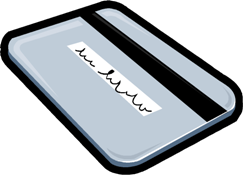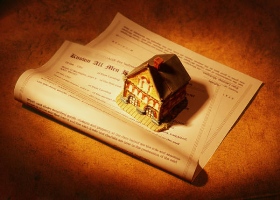Bankruptcy Mistake 1: Maxing Out your Credit Cards
 Once you have made the decision to file bankruptcy, stop using your credit cards to purchase luxury items. If credit card debts in excess of five hundred dollars are incurred within 90 days of filing, the bankruptcy court can consider those debts non-dischargeable and you may be forced to repay them. The same is true for cash advances or pay-day loans of more than seven hundred fifty dollars.
Once you have made the decision to file bankruptcy, stop using your credit cards to purchase luxury items. If credit card debts in excess of five hundred dollars are incurred within 90 days of filing, the bankruptcy court can consider those debts non-dischargeable and you may be forced to repay them. The same is true for cash advances or pay-day loans of more than seven hundred fifty dollars.
Bottom line: It is not wise to jeopardize your chance to obtain bankruptcy relief because you maxed out your credit cards.
Bankruptcy Mistake 2: Liquidation of your Retirement Account
In most bankruptcy cases, the petitioner’s retirement account is protected from liquidation. However, despite this fact, many people choose to liquidate their retirement accounts and other assets in order to satisfy or pay down their debt prior to filing for bankruptcy.
Generally, this course of action is not recommended and you should consult with a knowledgeable bankruptcy attorney prior to making this decision. Your savings are your future and you should keep them safe!
Bankruptcy Mistake 3: Repaying Some Debts, But Not All
When filing for bankruptcy, all of your debts are taken into consideration and you will likely not be able to prioritize your debts. This means you cannot choose to repay a friend, but ignore your creditors. If you do, a bankruptcy trustee has the legal authority to recover any amount repaid to a family member within one year of the bankruptcy filing.
Bankruptcy Mistake 4: Securing an Additional Line of Credit to Repay Creditors
 If you are behind on payments to your creditors, one of the last things you should consider is obtaining a line of credit against your property in order to repay your debts. In many instances, you are allowed to keep your proper despite your bankruptcy filing.
If you are behind on payments to your creditors, one of the last things you should consider is obtaining a line of credit against your property in order to repay your debts. In many instances, you are allowed to keep your proper despite your bankruptcy filing.
Bottom line: If you opt to obtain a second mortgage to repay your credit card debt, you may be putting your house at risk, especially in the event your bankruptcy petition is denied.
Bankruptcy Mistake 5: Disregard for Hearings or Other Court Appearances
If there is a civil action pending against you, it can be a mistake to ignore said action just because you’re either considering or have filed for bankruptcy.
More importantly, if you fail to appear for a bankruptcy hearing, your case can be dismissed depending on the laws governing bankruptcy in your state.
Bankruptcy Mistake 6: Property Transfers
Bankruptcy laws are designed to protect both petitioners and creditors. If the bankruptcy court determines that you’ve transferred property with the intent to defraud or hinder the bankruptcy process, your property transfer can be reversed, and harsh fines may be assessed against you.
Bankruptcy Mistake 7: Not Being Honest with your Bankruptcy Attorney
A bankruptcy attorney can help you, but only if you are completely honest with him/her. Failure to disclose all of your assets to your attorney can result in you losing those assets. Your dishonesty can also result in harsh fine, denial of your case, and possibly jail time.
Bottom line: Be honest with your attorney so he/she can protect your rights, property and those assets you may have worked so hard to obtain.
Our bankruptcy law firm helps individual and business debtors navigate the bankruptcy process. We offer the highest level of protection to our clients based on their individual circumstances. Most bankruptcy petitioners are allowed to keep their assets, including their homes, automobiles and retirement accounts.
If you have any questions about the bankruptcy process, contact our office now to schedule an initial consultation! Sit down with an experienced bankruptcy lawyer and get any and all questions you have answered. Your consultation will be FREE if you have completed our questionnaire prior to your appointment, so give contact us today.
